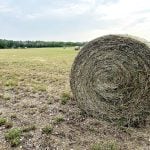The Supreme Court of Canada will hear the Ontario government’s appeal of a lower court decision that shot down the provincial law blocking farm workers from collective bargaining.
Canada’s top court announced Thursday it will hear the province’s appeal of a Nov. 17 decision by the Ontario Court of Appeal that overturned the province’s Agricultural Employees Protection Act (AEPA).
“We’re disappointed that the justice delayed to Ontario farm workers will be further delayed,” said Wayne Hanley, the national president of the United Food and Commercial Workers (UFCW Canada), which challenged the 2003 law in court on behalf of three workers at a Windsor-area mushroom farm.
Read Also

Alberta harvest wrapping up: report
Harvest operations advanced to 96 per cent complete in Alberta as of Oct. 7, with only a few late-seeded cereal and canola fields remaining, according to the latest provincial crop report.
“We’re also enraged that the Ontario government has chosen to continue denying the human rights of the province’s most vulnerable workers. The actions of the McGuinty government and the corporate farm lobby are shaming Canada’s international reputation.”
The AEPA was introduced in 2003 by the Tory government of Ernie Eves. The Tories said the act protected the rights of farm employees to associate “while recognizing the unique characteristics of agriculture and the family farm.”
“We’re respecting the individual and constitutional rights of agriculture employees, and protecting Ontario’s harvests and food supply from potentially devastating labour disruptions,” then-agriculture minister Helen Johns said at the time.
The Eves government brought in the AEPA after the previous Mike Harris Tory government repealed the Agricultural Labour Relations Act — a law from Bob Rae’s previous NDP government that had granted collective bargaining rights to farm workers.
The AEPA instead gave ag workers the right to form and join an employees’ association, or different employees’ associations, and to make representations to their employers through such associations. A union could act as an employees’ association.
But the AEPA was intended to stop far short of collective bargaining, in that it specifically would not grant an employees’ association or union the right of exclusive representation for all of a company’s workers.
The Ontario Superior Court of Justice first rejected UFCW’s claims in early 2006, ruling that the AEPA met the minimum statutory requirements necessary to protect the freedom to organize.
But the Ontario Court of Appeal in November 2008 declared the AEPA constitutionally invalid, finding it “impaired the capacity of agricultural workers to meaningfully exercise their right to bargain collectively.”
Dalton McGuinty’s Liberal government, however, filed an application in mid-January this year to the Supreme Court for leave to appeal the provincial appeal court’s ruling.
According to UFCW, the Ontario appellant court’s ruling was based in part on two earlier decisions by the Supreme Court, in which ruled the right to collective bargaining is protected under the “freedom of association” provisions of Canada’s Charter of Rights and Freedoms.
“Twice now the Supreme Court has ruled that labour rights are human rights,” Hanley said in the union’s release Thursday. “If in its wisdom the Supreme Court wants the opportunity to render a final definitive ruling, we must abide by that.”
The union also said it plans to press its case at the International Labour Organization “that the Ontario ban on farms unions contravenes two United Nations labour rights conventions that Canada is a signatory to.”
Rol-Land Farms, the Windsor-area mushroom company at the heart of UFCW Canada’s original court challenge against the AEPA, sought and got creditor protection in mid-December 2008 as “a result of current economic circumstances” but didn’t elaborate at the time on what those circumstances were.















